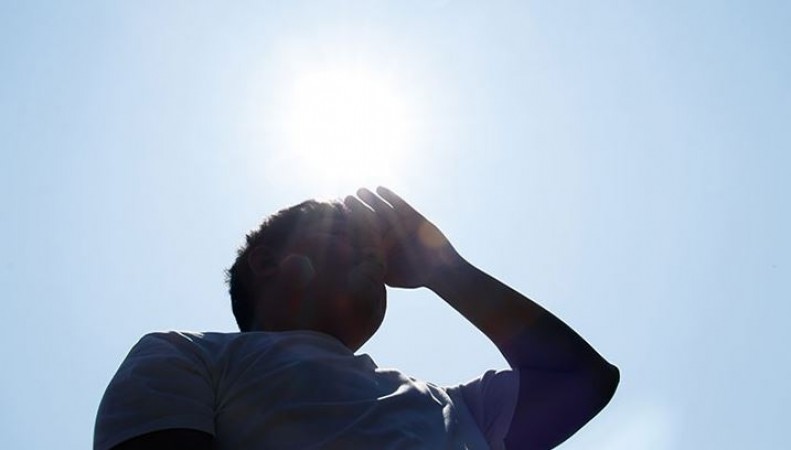
As temperatures soar during the scorching summer months, incidents of people fainting due to intense heat become increasingly common. Fainting, or syncope, occurs when there is a temporary loss of consciousness typically caused by insufficient blood flow to the brain. In the context of high heat, various factors contribute to this phenomenon, making it essential to understand the underlying reasons and implement effective prevention strategies. This comprehensive guide aims to delve deeper into the causes of fainting in high heat and provide detailed prevention techniques to mitigate the risks.
Several factors contribute to low blood pressure during the summer months:
Dehydration and Its Impact on Fainting:
Dehydration, characterized by an inadequate intake of fluids or excessive loss of fluids, is a leading cause of fainting in high heat conditions. When individuals fail to replenish lost fluids through sweating, the body's blood volume decreases, leading to reduced blood flow to the brain. This diminished blood supply can result in dizziness, light-headedness, and ultimately fainting. Therefore, it is crucial to recognize the signs of dehydration and prioritize adequate fluid intake, especially when exposed to hot temperatures.
Sodium Loss and its Role in Fainting:
Sodium, an essential electrolyte, plays a crucial role in regulating fluid balance within the body. Sweating during periods of high heat causes the loss of sodium along with fluids, disrupting the body's electrolyte balance. As sodium levels decrease, blood pressure may drop, impairing circulation and increasing the risk of fainting. To prevent sodium depletion and associated fainting episodes, individuals should consume electrolyte-rich foods and beverages, particularly during prolonged exposure to heat.
Vasodilation and its Impact on Blood Pressure:
Vasodilation, the widening of blood vessels, is a natural response to heat aimed at dissipating excess body heat and maintaining core temperature. While vasodilation facilitates heat loss, it also leads to a decrease in blood pressure due to the increased capacity of the vascular system. Consequently, individuals may experience symptoms such as dizziness and fainting as blood flow to the brain becomes compromised. To counteract the effects of vasodilation, it is crucial to stay hydrated, avoid prolonged exposure to heat, and engage in activities that promote healthy circulation.
Recognizing the Symptoms of Fainting:
Fainting episodes often present with warning signs that individuals should be aware of to take appropriate preventive measures. Symptoms such as dizziness, light-headedness, blurred vision, nausea, and feeling overheated may precede a fainting episode. Additionally, individuals may experience a sudden loss of consciousness or fainting without warning. By recognizing these symptoms, individuals can intervene early to prevent fainting by seeking shade, resting, and hydrating adequately.
Prevention Strategies for Fainting in High Heat:
a. Stay Hydrated: Maintaining adequate hydration is paramount in preventing fainting due to high heat. Individuals should drink plenty of water throughout the day, even if they do not feel thirsty, and avoid excessive consumption of caffeinated or alcoholic beverages, which can contribute to dehydration.
b. Consume Electrolytes: In addition to water, consuming electrolyte-rich foods and beverages helps replenish lost sodium and other essential minerals. Options include sports drinks, coconut water, bananas, and salty snacks.
c. Seek Shade and Rest: When exposed to intense heat, individuals should seek shade and rest frequently to prevent overheating and exhaustion. Taking breaks indoors or in shaded areas allows the body to cool down and reduces the risk of fainting.
d. Dress Appropriately: Wearing lightweight, breathable clothing and a wide-brimmed hat helps to minimize heat absorption and promote ventilation. Light-colored clothing reflects sunlight, keeping the body cooler during outdoor activities.
e. Avoid Strenuous Activity: During periods of extreme heat, it is advisable to limit strenuous physical activity, particularly during the hottest parts of the day. Engaging in activities during the early morning or evening when temperatures are lower reduces the risk of overheating and fainting.
f. Know Your Limits: Individuals should be aware of their tolerance to heat and adjust their activities accordingly. Pushing beyond one's limits increases the likelihood of dehydration, heat exhaustion, and fainting. It is essential to listen to the body's signals and take breaks as needed.
g. Utilize Cooling Measures: Employing cooling measures such as taking cold showers, using fans, or applying cold compresses helps regulate body temperature and prevent overheating. Additionally, using air conditioning or seeking refuge in air-conditioned spaces provides relief from the heat.
h. Monitor Vulnerable Populations: Certain populations, including the elderly, young children, and individuals with pre-existing medical conditions, are more susceptible to heat-related illnesses and fainting. Caregivers and family members should closely monitor these individuals and take proactive measures to prevent overheating and dehydration.
i. Be Prepared for Emergencies: Despite preventive measures, fainting episodes may still occur. It is essential to be prepared to respond promptly by assisting the individual to a cool, shaded area, laying them down with their legs elevated, and providing fluids if conscious. If the individual does not regain consciousness promptly or experiences seizures, seek medical attention immediately.
Fainting in high heat conditions poses significant health risks and can have serious consequences if not addressed promptly. By understanding the underlying causes of fainting, such as dehydration, sodium loss, and vasodilation, individuals can implement effective prevention strategies to mitigate the risks. Prioritizing hydration, electrolyte intake, and heat safety measures while being vigilant for warning signs of fainting enables individuals to enjoy outdoor activities safely during the summer months. Additionally, educating vulnerable populations and caregivers about heat-related illnesses and appropriate preventive measures is crucial in reducing the incidence of fainting and associated complications. Through proactive efforts and awareness, individuals can minimize the risks of fainting in high heat and enjoy a safe and enjoyable summer season.